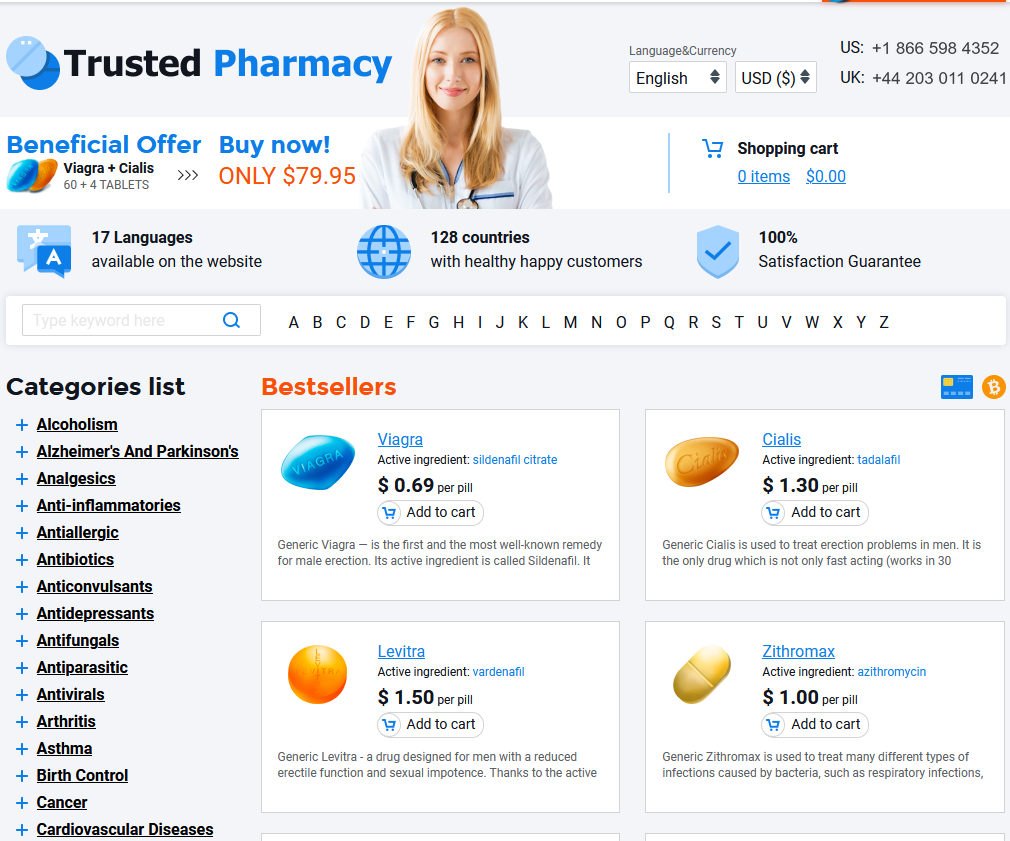To Visit Online Pharmacy Click HERE ↓
Understanding how Aciphex works
Understanding the mechanism of action of Aciphex:
Aciphex is a proton pump inhibitor (PPI) that is widely used in the management of gastroesophageal reflux disease (GERD) and other acid-related disorders. Aciphex works by reducing the amount of acid produced in the stomach, which helps to relieve symptoms of heartburn, acid indigestion, and other related symptoms. This is achieved through the inhibition of a specific enzyme in the stomach, called the proton pump, which is responsible for producing acid. Unlike other medications that neutralize the acid in the stomach, PPIs like Aciphex work to prevent its production, making them more effective in treating GERD.
Moreover, Aciphex is classified as an “irreversible” PPI, which means that its effect on the proton pump is long-lasting compared to other PPIs, such as omeprazole and lansoprazole. Aciphex works by binding to the enzyme that pumps acid into the stomach, thus preventing it from functioning correctly even after it is removed from the body. This leads to sustained acid suppression and provides more relief from GERD symptoms compared to other PPIs. Understanding how Aciphex works in the body is crucial in optimizing its use, ensuring maximum effectiveness, and minimizing side effects.
Aciphex, like other PPIs, is a highly effective medication for the treatment of acid-related disorders, provided it is taken as directed. However, it is important to note that different PPIs vary in their pharmacokinetics and pharmacodynamics, which affect their potency, duration of effect, and potential for drug interactions. Patients must adhere to the recommended dosage and administration requirements for Aciphex to achieve optimal therapeutic results. The medication is typically taken once a day before a meal, and the dose may be adjusted according to the severity of the disease and the individual’s response. In general, Aciphex is safe and well-tolerated, but precautions must be taken to minimize side effects, which may include headache, diarrhea, and abdominal pain, especially when used long-term.
Understanding the mechanism of action of Aciphex Aciphex is a medication that belongs to the class of proton pump inhibitors (PPIs) and is primarily used to reduce acid production in the stomach. The main active ingredient in Aciphex is rabeprazole, which works by inhibiting the activity of the gastric proton pump. The proton pump is responsible for releasing hydrogen ions into the stomach to aid in the process of digestion. By blocking the proton pump, Aciphex effectively reduces the production of acids, thus preventing the symptoms of acid reflux from occurring.
How Aciphex differs from other proton pump inhibitors Compared to other PPIs, Aciphex has a unique chemical structure and is more stable in acidic environments, which makes it a highly effective drug for the treatment of gastroesophageal reflux disease (GERD). Aciphex is also rapidly absorbed, providing faster relief than other PPIs. Additionally, unlike other PPIs, rabeprazole is metabolized differently in the liver, eliminating the need for dosage adjustment in patients with liver disease. Overall, Aciphex has been found to be highly effective in reducing heartburn symptoms and repairing damaged esophageal tissue.
Dosage and administration requirements for Aciphex
When it comes to the dosing and administration of Aciphex, it is important to note that the medication should always be taken as prescribed by a healthcare professional. This usually involves taking one tablet daily, with or without food. The tablets should be swallowed whole and should not be crushed or chewed. In addition, it is important to avoid breaking the tablets, as this can interfere with the medication's release mechanism.
Individuals who are taking Aciphex for the first time should be monitored closely for any signs of adverse effects, especially those related to the digestive system. If any side effects, such as severe stomach pain, diarrhea or vomiting, are experienced, it is important to contact a healthcare provider immediately. In some cases, the dosage of Aciphex may need to be adjusted or the medication may need to be discontinued altogether in order to prevent serious complications.
Overall, the dosing and administration of Aciphex should be carefully considered and closely monitored in order to ensure that the medication is effective and safe for each individual patient. Any concerns or questions about how to take Aciphex properly should be directed to a qualified healthcare professional.
Tips for Minimizing Side Effects While Taking Aciphex
Aciphex, like any other medication, comes with certain side effects that can cause discomfort to the patient. However, many patients do not experience any side effects while taking Aciphex. For those who do, the side effects are generally mild and may include headache, dizziness, diarrhea, abdominal pain, and nausea. To minimize the side effects of Aciphex or any other medication, it is recommended to follow a few tips.
Firstly, it is important to take the medication at the same time every day. This will help maintain a consistent level of the medication in the blood and prevent fluctuations that can cause side effects. Secondly, patients should take the medication with food to help reduce the risk of stomach upset. Additionally, it is important to avoid alcohol while taking Aciphex as it can increase the risk of side effects. Lastly, patients should inform their healthcare provider if they experience any new or persistent side effects while taking Aciphex to determine the best course of action.
Exploring the potential benefits of using Aciphex as a long-term treatment: One of the most significant benefits of using Aciphex as a long-term treatment for gastroesophageal reflux disease (GERD) is its ability to provide sustained relief from heartburn symptoms. Aciphex is a proton pump inhibitor, which works by blocking the production of acid in the stomach, thereby reducing the occurrence of acid reflux. One study found that patients who took Aciphex for up to 12 months experienced significantly fewer episodes of heartburn compared to those who took a placebo.
Another potential benefit of using Aciphex as a long-term treatment is its ability to reduce the risk of complications associated with GERD. Chronic acid reflux can lead to inflammation of the esophagus, which may result in tissue damage and scarring. In severe cases, it may even lead to the development of esophageal cancer. By reducing the amount of acid in the stomach, Aciphex can help prevent this damage and improve overall health outcomes for patients with GERD. However, it is important to note that long-term use of Aciphex may also increase the risk of certain side effects, such as bone fractures and vitamin B12 deficiency, which should be discussed with a healthcare provider.
Frequently asked questions about Aciphex and its use:
1. How quickly does Aciphex work? Aciphex works by decreasing the amount of acid produced by the stomach, which takes time. It may take a few days to start experiencing the full benefits of taking Aciphex, so it's important to continue taking it as prescribed, even if symptoms initially persist. If your symptoms do not improve after a few weeks of taking Aciphex, notify your healthcare provider.
2. Can Aciphex be taken with other medications? Aciphex can interact with other medications, including prescription and over-the-counter drugs, vitamins, and herbal supplements. It's essential to inform your healthcare provider about all the medications you are taking, including Aciphex, to avoid any potential drug interactions. Consult with your healthcare provider before taking any other medications while on Aciphex.
3. Can Aciphex be taken during pregnancy or breastfeeding? The safety of taking Aciphex during pregnancy or breastfeeding is yet to be established. Therefore, it's crucial to discuss with your healthcare provider whether it's safe to take Aciphex while pregnant or breastfeeding. In case of an unexpected pregnancy or breastfeeding while taking Aciphex, notify your healthcare provider immediately.
The role of Aciphex in managing gastroesophageal reflux disease (GERD) cannot be overstated. Aciphex, also known as rabeprazole, is a proton pump inhibitor (PPI) that reduces the amount of acid produced in the stomach. GERD occurs when stomach acid leaks back into the esophagus, causing heartburn, regurgitation, and other uncomfortable symptoms. Aciphex works by inhibiting the proton pump, which is responsible for the final step in acid production in the stomach. By reducing the amount of stomach acid produced, Aciphex reduces the risk of acid reflux and related symptoms.
One way that Aciphex differs from other PPIs is in its chemical structure. Aciphex contains a sulfonamide moiety, which allows it to be activated more efficiently than other PPIs. It is also less likely to be affected by variations in gastric pH, making it more effective in reducing acid reflux symptoms. Aciphex is slightly more potent than other PPIs, which means that smaller doses may be needed to achieve the desired effect. However, because it is rapidly cleared from the body, it may need to be taken more frequently than other PPIs.

